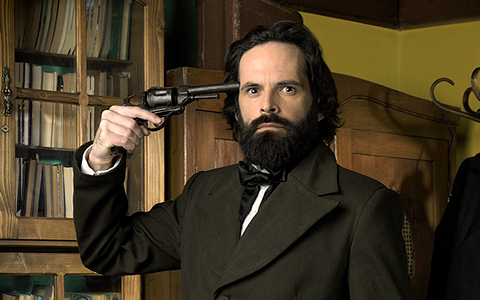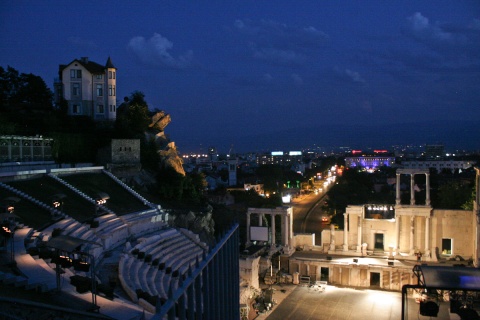Bulgarian Icons – The End of History
08.09.2014 § 2 Comments

Photographer Lyubomir Sergeev asks a painful question: would the treasured heroes of Bulgaria’s past stab themselves in the heart or shoot themselves if they could see what their country is like today? In painstaking detail, he recreates the dress and time periods of six great Bulgarian men and creates a new kind of portrait: one that not only inspires, but also forces us to think harder, to be better.
Unified Bulgaria
07.09.2014 § 2 Comments
Bulgaria’s national day is deservedly March 3, 1878. After almost 500 years under the rule of the Ottoman Empire and a two-year war of liberation championed by Russia, a treaty signed on that day in the Istanbul suburb of San Stefano restored Bulgaria as a powerful state on the Balkans encompassing all the lands populated by Bulgarians and ruled by the idealistic Alexander I Battenberg, grandson of Queen Victoria and nephew to the Russian emperor. However, San Stefano Bulgaria was hacked up by the delegate nations at the Congress of Berlin only three months later. Ethnically Bulgarian territories (in striped red on the map) were divided into three distinct regions: the Principality of Bulgaria encompassed only Moesia and the Sofia region, Thrace became semi-autonomous under the name Eastern Rumelia and the status of Macedonia and parts of Thrace remained unchanged: they returned to Ottoman rule and their populations were brutally punished for the short gasp of freedom.

Prince Alexander I Battenberg
In this manner the Great Powers of Europe sowed the seeds for countless conflicts on the Balkans. Because of the Congress of Berlin, Bulgaria would spend decades struggling to once again unify all the lands considered ethnically Bulgarian in its borders. This struggle would cost it two national catastrophes and sour its relationships with Serbia, Greece and Romania, who’d believe (not entirely without cause) Bulgaria to be motivated by hegemony.
Plovdiv selected for European Capital of Culture 2019
05.09.2014 § 1 Comment
After a five-year, good-natured rivalry with three other cities, my birthplace of Plovdiv has been selected as Bulgaria’s official entrant into the European Capital of Culture program. The other European Capital of Culture for 2019 will be in Italy, where Caglieri, Lecce, Matera, Perugia, Ravenna and Siena are competing in the final round.
Out of 8 original candidates in Bulgaria (Burgas, Gabrovo, Plovdiv, Ruse, Shumen, Sofia, Varna and Veliko Tarnovo), four finalists were selected to submit detailed proposals and to begin implementing strategies and programs towards becoming Capital of Culture. Any one of these cities is well worth a visit.
 Plovdiv
Plovdiv
Continuously inhabited for close to 6000 years, Plovdiv is the third-oldest city in Europe (following Athens and Argos). Throughout its long history it has had multiple stints as an important crossroads city. Notably, as Trimontium to the Romans, Plovdiv was the most important Roman city in the province of Thrace, as it lay on the Via Diagonalis arterial road for the empire. Cobbled Roman streets, theatres, villas, and an entire stadium can be seen there, layered with Ottoman-era and Revival-era homes. The oldest mosque in Europe outside of Moorish Spain, Djumaya mosque, lies at the centre of the city.